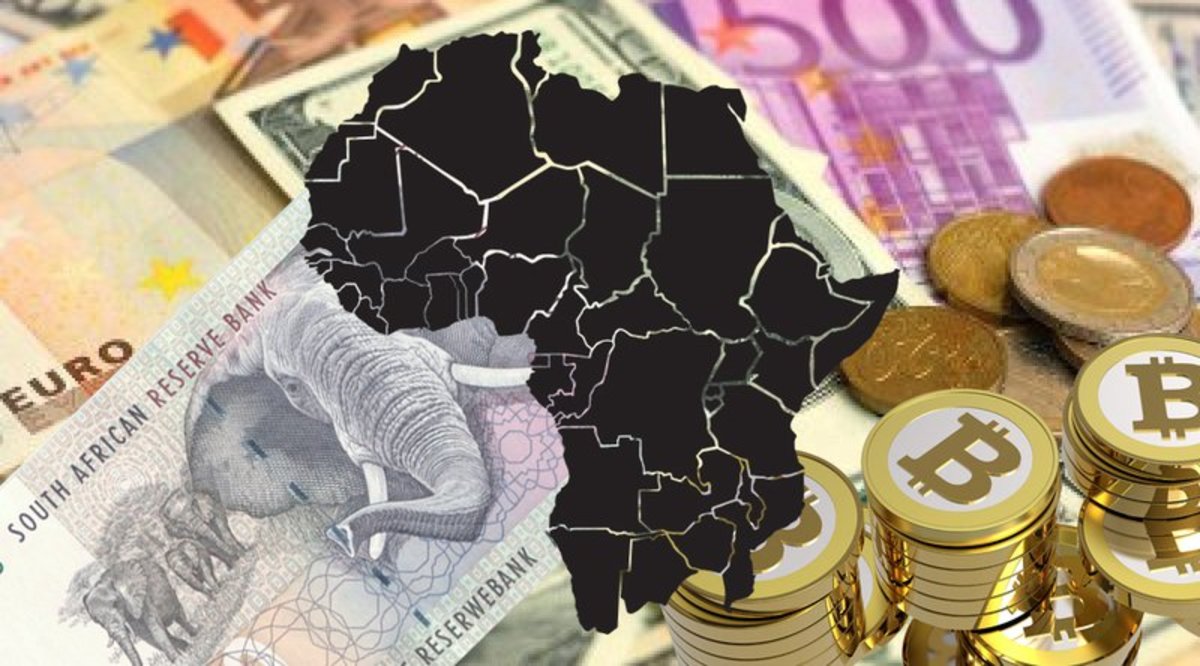
According to the World Bank’s Global Financial Inclusion Index, Africa has the highest mobile money adoption rate in the world. Worldwide, only 2 percent of the population possesses a mobile money account; in Africa, 12 percent of the population uses mobile money.
Africa’s affinity for mobile money is one of the main reasons why many members of the Bitcoin community believe that the region is fertile ground for bitcoin adoption, especially to meet the needs of the large underbanked population that often relies on mobile money to send and receive payments.
However, the reality is that African mobile money and e-payments adoption is heavily clustered towards specific countries and is not a continent-wide phenomenon. The vast majority of Africans still rely on cash to conduct their daily financial transactions.
According to KPMG’s Payment Developments in Africa 2015 report, 94 percent of retail transactions in both urban and rural Africa are conducted in cash, which means that only 6 percent of transactions are made with bank cards or e-payment systems. Credit card adoption is notoriously low in Africa, whereas mobile payment systems are on the rise as more Africans have mobile phones than they do bank accounts. However, even mobile money and e-payment adoption is still in its early stages for most of the continent.
Low Internet Penetration Delays Adoption
The biggest challenge to e-payments adoption, and that includes bitcoin, is Sub-Saharan Africa’s low rate of internet use. Africa’s internet penetration rate is currently at 28.7 percent. It is therefore no surprise that those countries with the highest internet adoption rates, such as South Africa, Nigeria, Ghana and Kenya, also have the highest adoption of e-payment systems.
According to data collated by the World Bank, South Africa has an internet penetration rate of 51.9 percent, with Nigeria at 47.8 percent, Ghana at 23.5 percent and Kenya at 45.6 percent. These figures are in stark contrast with levels of internet use in some of Africa’s largest countries, such as Angola with 12.4 percent, DR Congo with 3.8 percent, Tanzania at 5.4 percent and Mozambique with 9 percent.
Kenya is regularly highlighted as Africa’s poster child for mobile money adoption, as 86 percent of its households have mobile money accounts. With its M-Pesa mobile money service, Telecom giant Safaricom holds the lion’s share of the Kenyan mobile money market.
The use of bitcoin to make payments, however, is virtually nonexistent in Kenya as there is effectively zero merchant adoption both on and offline. While bitcoin trading volumes are increasing according to LocalBitcoins data, and the country’s small bitcoin community is growing, the reality is that bitcoin in Kenya is more of a myth than a reality, as rightfully stated in a VICE Motherboard article earlier this year.
Bitcoin awareness across Africa echoes the situation in Kenya. In most countries, there is a small bitcoin community and a handful of startups that are aiming to leverage bitcoin as an alternative store of wealth and a means to make international remittances. However, digital currency is still a big unknown to the vast majority of Africans. Until internet penetration increases across the board, this will likely remain the case in the years to come.
South Africa Leads in Bitcoin Adoption
There is, however, one country that stands as a beacon of hope for bitcoin in Africa. South Africa boasts a small but vibrant bitcoin startup community and has a central bank that is friendly to the digital currency.
Since 2014, South Africa is also home to Africa’s first bitcoin ATM, which is located in Johannesburg. The city also acts as the base for several leading African bitcoin exchanges, such as BitX and Ice3x. South Africans can even pay their utility bills using bitcoin, thanks to the fintech startup Bankymoon.
Having said that, even in South Africa bitcoin awareness levels are still low within the general population despite a relatively high level of internet penetration.
Cash Likely to Remain King in Africa
Cash remains the number one method of making and receiving payments in Africa and that is not likely to change anytime soon. While financial institutions and tech startups active in the payments space would like to see large-scale adoption of mobile money and other digital payments systems, the reality is that — due to low internet penetration and a lack of trust in the financial system — Africans will likely stick to cash for the time being.










